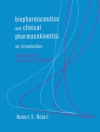This fourth edition brings together a diverse range of experts in nutrition-related areas to discuss recent thinking and discoveries in nutrition, especially in relation to topics that have the greatest capacity to improve human health and nutritional implementation. An overview of nutrition science in the third decade of the twenty-first century reveals that much water has flown under the bridge of the advancing river that is nutrition research and practice. With these large accumulations of developments in the field of nutrition, the need for a new edition of this book is obvious. Our vastly improved nutrition knowledge gives us the capability of preventing a sizable fraction of the chronic diseases that afflict the people of our world, but only if these discoveries can be translated into effective action at the population level. Nutritional Health endeavours to address the needs of those who would most benefit from up-to-date information on key areas in the field of nutrition.
The book starts with a discussion of the nature of nutritional research then moves into an overview of the most important aspects of the complex interactions between diet, its nutrient components, and their impacts on disease states, and on those health conditions that increase the risk of chronic diseases. Parts three and four discuss diet and include new chapters on the Mediterranean diet, the DASH diet, the flexitarian diet, and the low-carbohydrate diet. The final two parts of the book discuss emerging trends in nutrition science, such as gut microbiome and sustainable diet, and areas of controversy in nutrition, such as the influence of the food industry and dietary supplements.
Up to date and comprehensive, Nutritional Health: Strategies for Disease Prevention, Fourth Edition offers physicians, dietitians, and nutritionists a practical, data-driven, integrated resource to help evaluate the critical role of nutrition.
Cuprins
PART 1: UNDERSTANDING NUTRITION.- Chapter 01: Methods in nutrition research.- Chapter 02: Challenges in research in nutritional epidemiology.- Chapter 03: The nutrition transition and the double burden of malnutrition.- PART 2: NUTRITIONAL CONTROL AND PREVENTON OF CHRONIC DISEASES.- Chapter 04: Pre-natal and childhood stressors promote chronic disease in later life.- Chapter 05: Nutritional principles in the treatment of diabetes.- Chapter 06: Obesity – a disease of overnutrition.- Chapter 07: Effects of nutrients on the control of blood lipids.- Chapter 08: Coronary heart disease: nutritional interventions for prevention and therapy.- Chapter 09: Nutritional influences on blood pressure.- Chapter 10: Nutrition, physical activity, and cancer prevention.- Chapter 11: Nutrition and eating disorders.- PART 3: NUTRITIONAL IMPORTANCE OF THE PARTS OF THE DIET.- Chapter 12: Alcohol consumption and health.- Chapter 13: Non-alcoholic beverages: clinical recommendations, concerns, and opportunities.- Chapter 14: Health benefits of dietary phytochemicals in whole foods.- Chapter 15: Functional foods: implications for consumers and clinicians.- PART 4: NUTRITION, HEALTHY DIETS, AND PUBLIC HEALTH.- Chapter 16: The Mediterranean diet.- Chapter 17: The DASH dietary pattern.- Chapter 18: The vegetarian/flexitarian diet.- Chapter 19: Low-carbohydrate nutrition and disease prevention.- Chapter 20: Trends in dietary recommendations: nutrient intakes, dietary guidelines, and food guides.- Chapter 21: Food labels: sorting the wheat from the chaff.- Chapter 22: Health promotion and nutrition policy by governments.- PART 5: EMERGING TRENDS.- Chapter 23: Food synergy: a paradigm shift in nutrition science.- Chapter 24: Genomics and gene-based personalized nutrition.- Chapter 25: Nutrition and the gut microbiome: insights into new dietary strategies for health.- Chapter 26: Food insecurity, nutrition, and the COVID-19 pandemic.- Chapter 27: Towardssustainable diets and food systems.- PART 6: AREAS OF CONTROVERSY.- Chapter 28: Technological approaches to improve food quality for human health.- Chapter 29: Optimizing nutrition for exercise and sports.- Chapter 30: Influence of the food industry: the food environment and nutrition policy.- Chapter 31: Dietary supplements and health: one part science, nine parts hype.- Chapter 32: A plague of false and misleading information.- Chapter 33: Postscript. An overview of nutrition: much progress but challenges ahead.
Despre autor
Norman J. Temple, Ph D (Corresponding editor)Centre for Science Athabasca University
Ted Wilson, Ph D Department of Biology Winona State University
David R. Jacobs, Jr., Ph DUniversity of Minnesota School of Public Health Division of Epidemiology and Community Health
George A. Bray, MDPennington Biomedical Research Center Louisiana State University












